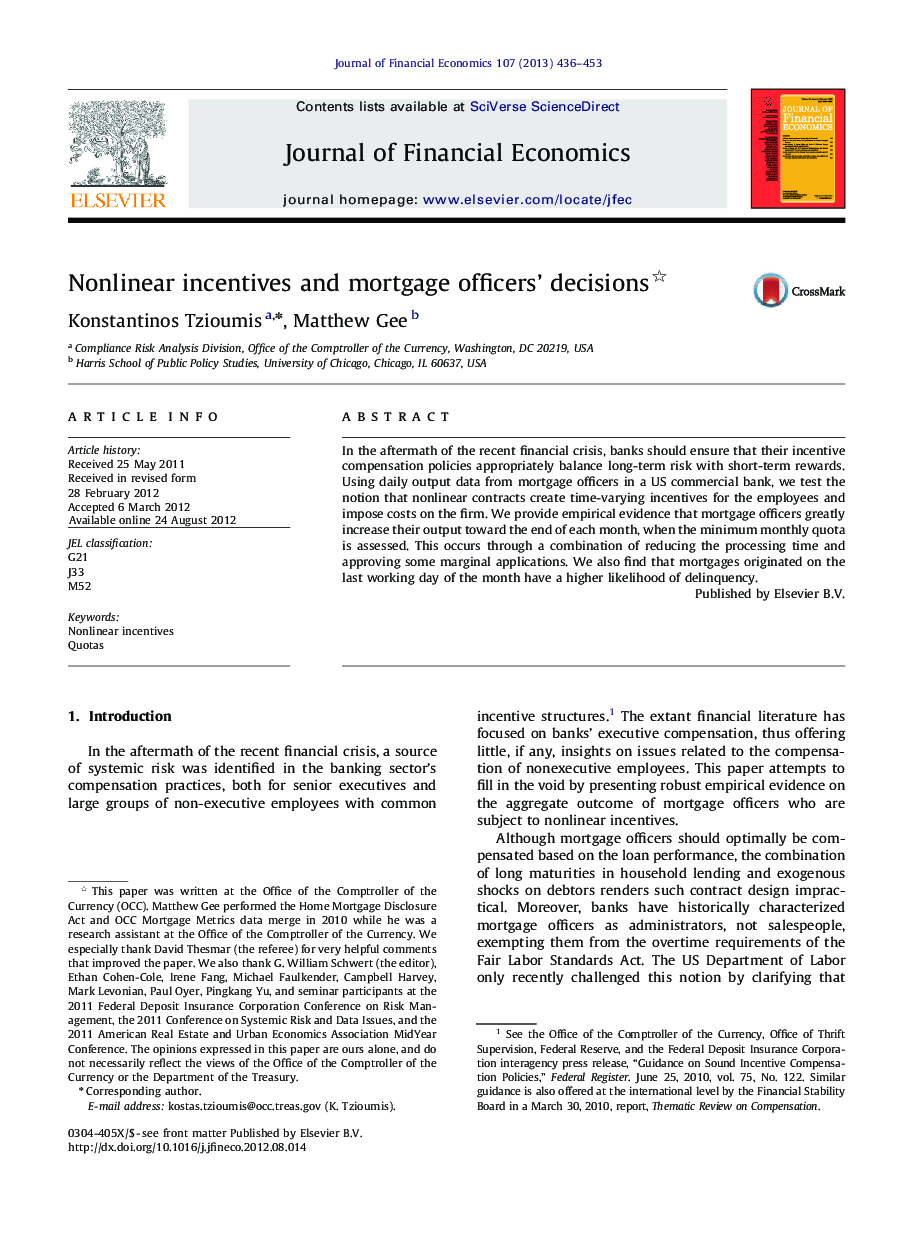| Article ID | Journal | Published Year | Pages | File Type |
|---|---|---|---|---|
| 960194 | Journal of Financial Economics | 2013 | 18 Pages |
In the aftermath of the recent financial crisis, banks should ensure that their incentive compensation policies appropriately balance long-term risk with short-term rewards. Using daily output data from mortgage officers in a US commercial bank, we test the notion that nonlinear contracts create time-varying incentives for the employees and impose costs on the firm. We provide empirical evidence that mortgage officers greatly increase their output toward the end of each month, when the minimum monthly quota is assessed. This occurs through a combination of reducing the processing time and approving some marginal applications. We also find that mortgages originated on the last working day of the month have a higher likelihood of delinquency.
